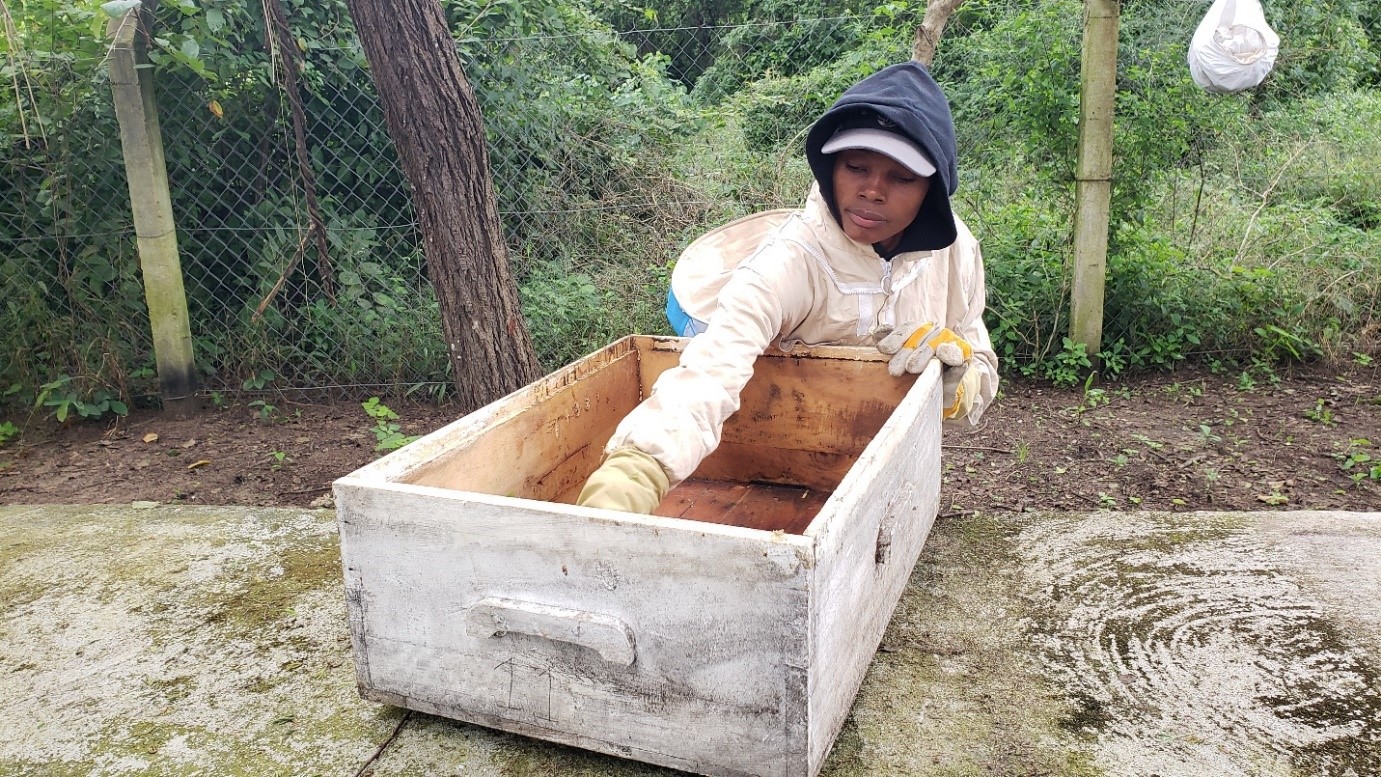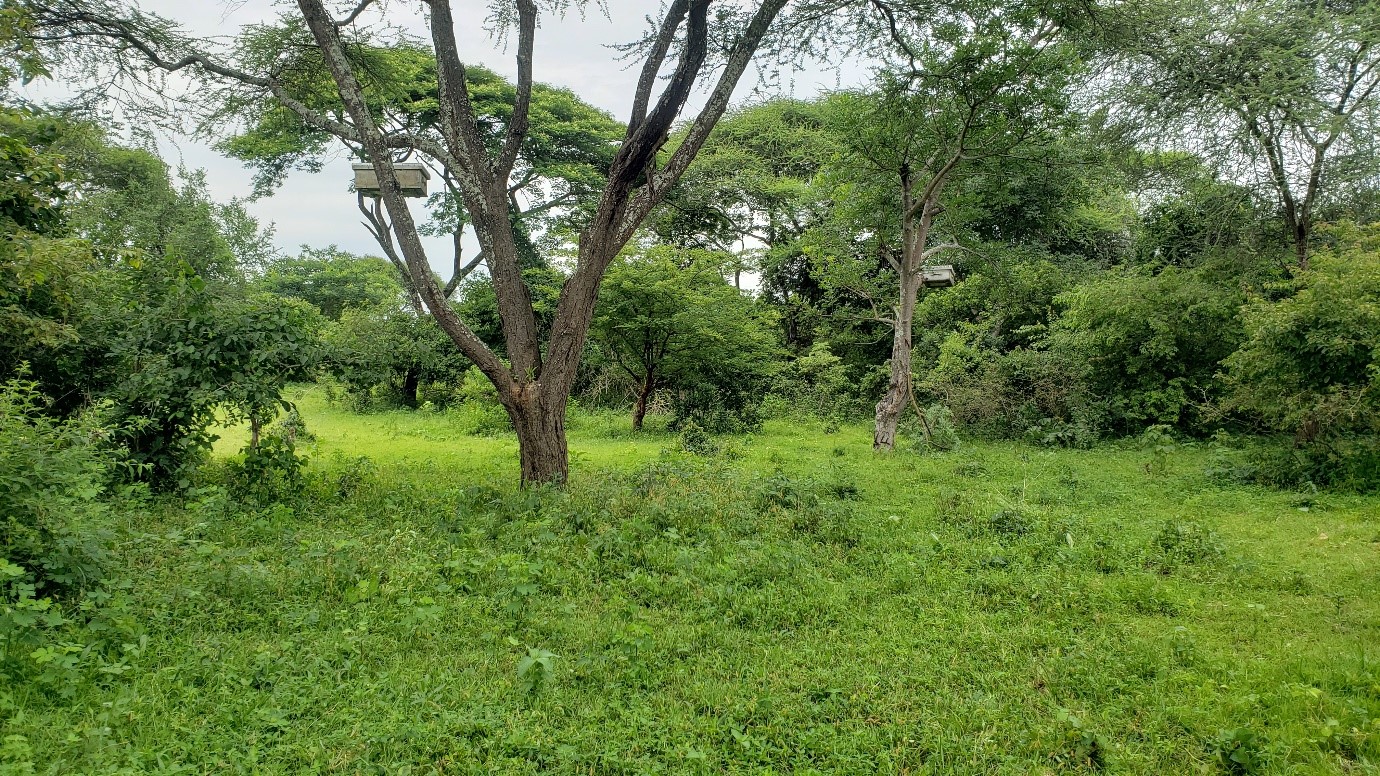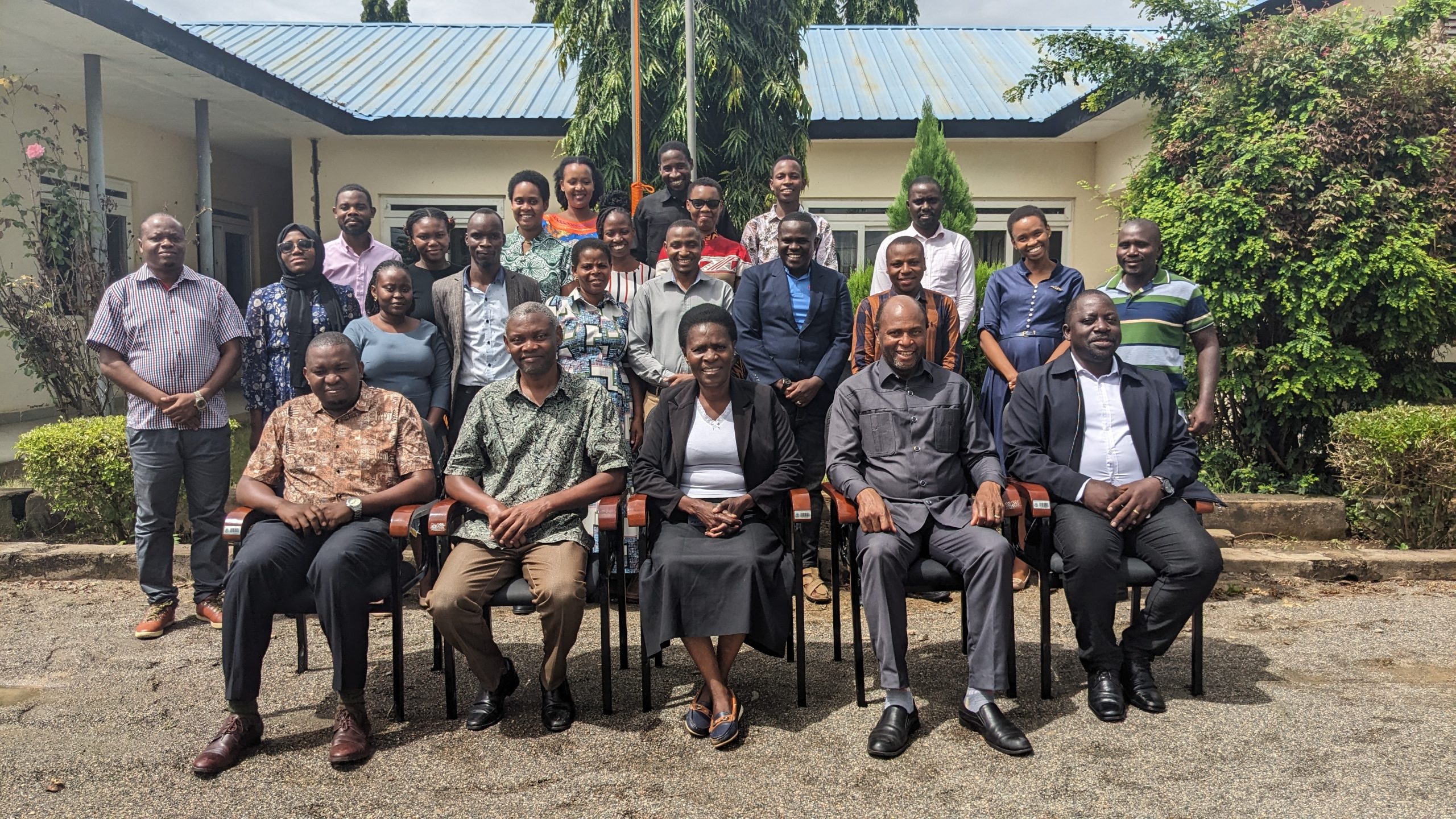At Mizengo Pinda Campus, second-year students of the Bee Resource Management course have taken a hands-on approach to learning. They have been actively involved in hive-cleaning activities at Vilolo Farm. One of the students, Simon Ritha Mruma, was photographed while meticulously cleaning a hive. This process is vital for maintaining the health of bee colonies and ensuring optimal honey production.

The hive cleaning process is comprehensive and involves several steps. Initially, the students open the hives carefully to remove any debris that has accumulated inside, such as dead bees, leaves, or dirt. They then use specialized hive tools to scrape off excess propolis and wax from the frames. Sterilization of hive components is also carried out to prevent the spread of diseases and pests. Each frame is inspected for signs of disease, mold, or damage, and old frames are replaced with new ones as necessary. In a healthy hive, students look for queen cells, which are where new queens develop. If there are too many queen cells, it could indicate potential swarming, and the students take preventive measures. Proper ventilation is also ensured within the hive, and the students make sure there is enough space for the bees to move around comfortably. All observations are documented, including hive conditions, any issues found, and the date of cleaning.

In addition to hive cleaning, the students, including Shao Hermes Jerome and Sara Rajabu, also ensure that the hive has sufficient resources. They observe bees returning to the hive with pollen sacs on their legs, as pollen is a crucial protein source for bee larvae. The students also monitor nectar flow by checking the honeycomb frames. Bees store excess honey for times of scarcity, and the students assess these honey reserves. The health of the brood, or bee larvae, is also checked, and the students inspect brood frames for signs of disease and sufficient egg-laying by the queen. The queen bee’s performance is evaluated, and the students verify her presence and assess her egg-laying patterns. They also encourage bees to forage naturally by planting bee-friendly flowers and maintaining a diverse landscape. Weather conditions, seasonal changes, and local flora are taken into account, and hive management is adjusted accordingly.

The training apiary farm is part of Sokoine University of Agriculture (SUA), Mizengo Pinda Campus, located in the village of Vilolo within the Mpimbwe District of Katavi Region. The farm specializes in beekeeping and provides practical training for students. The hands-on experience gained here is invaluable for the students’ future careers in bee resource management.

